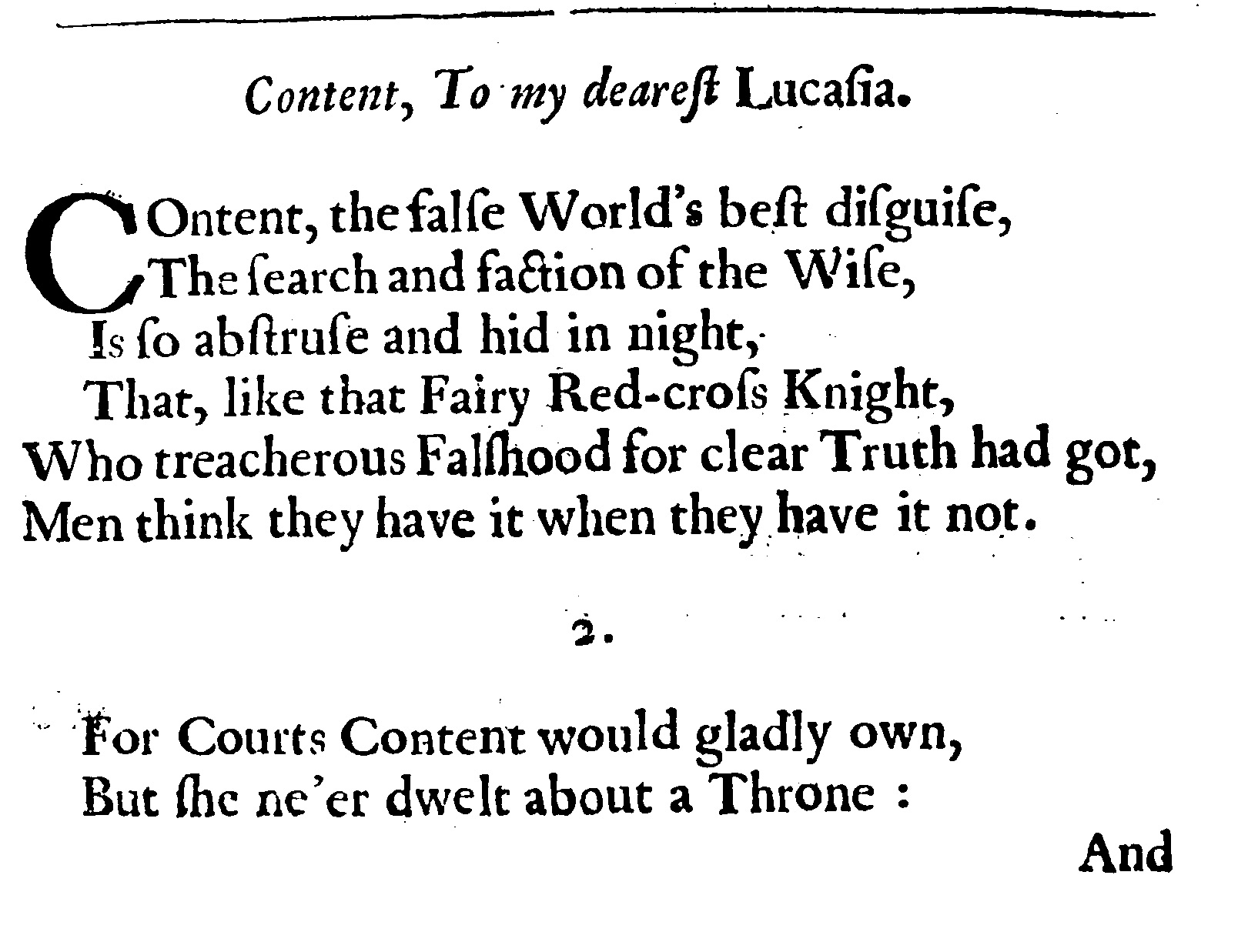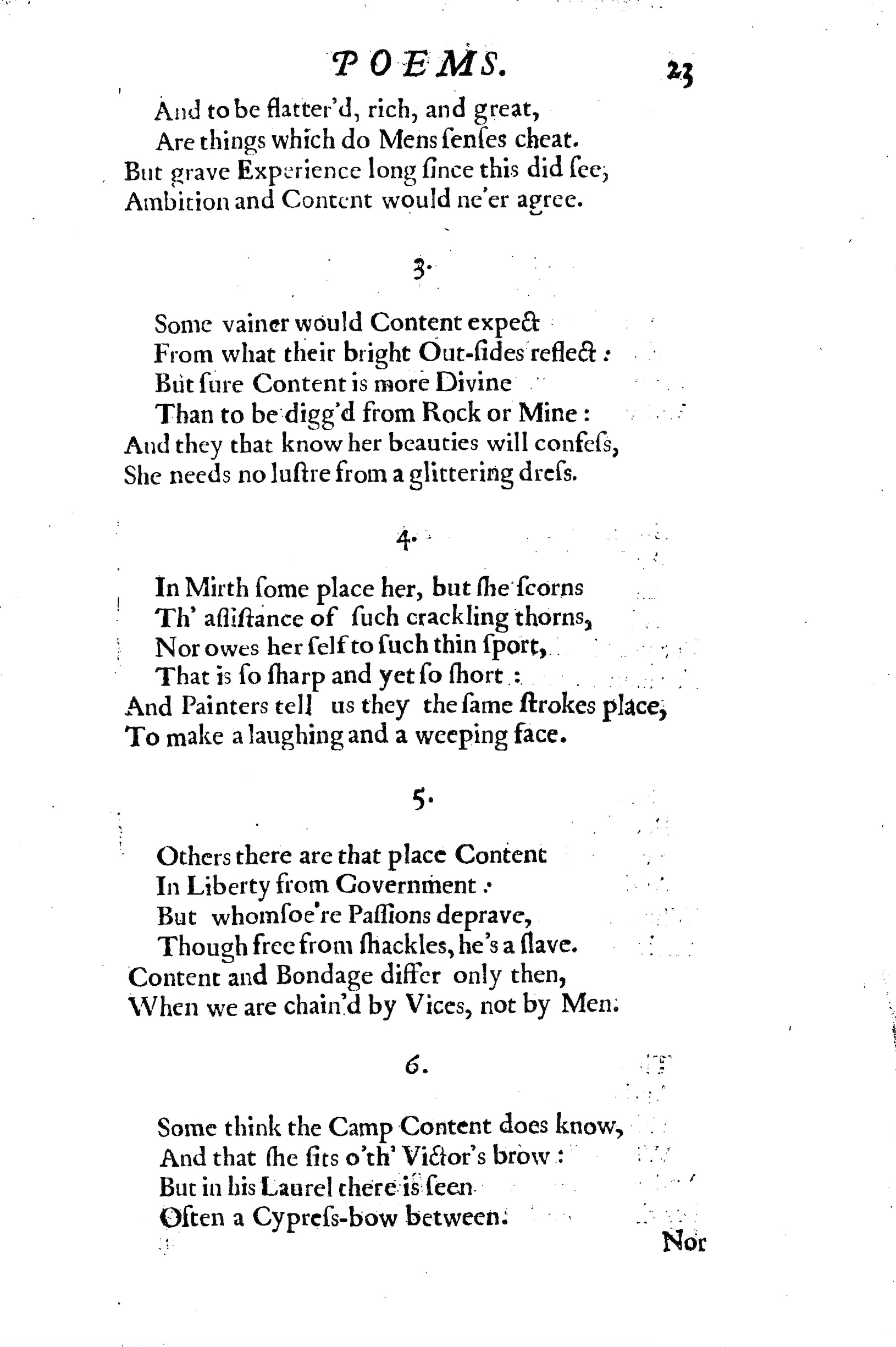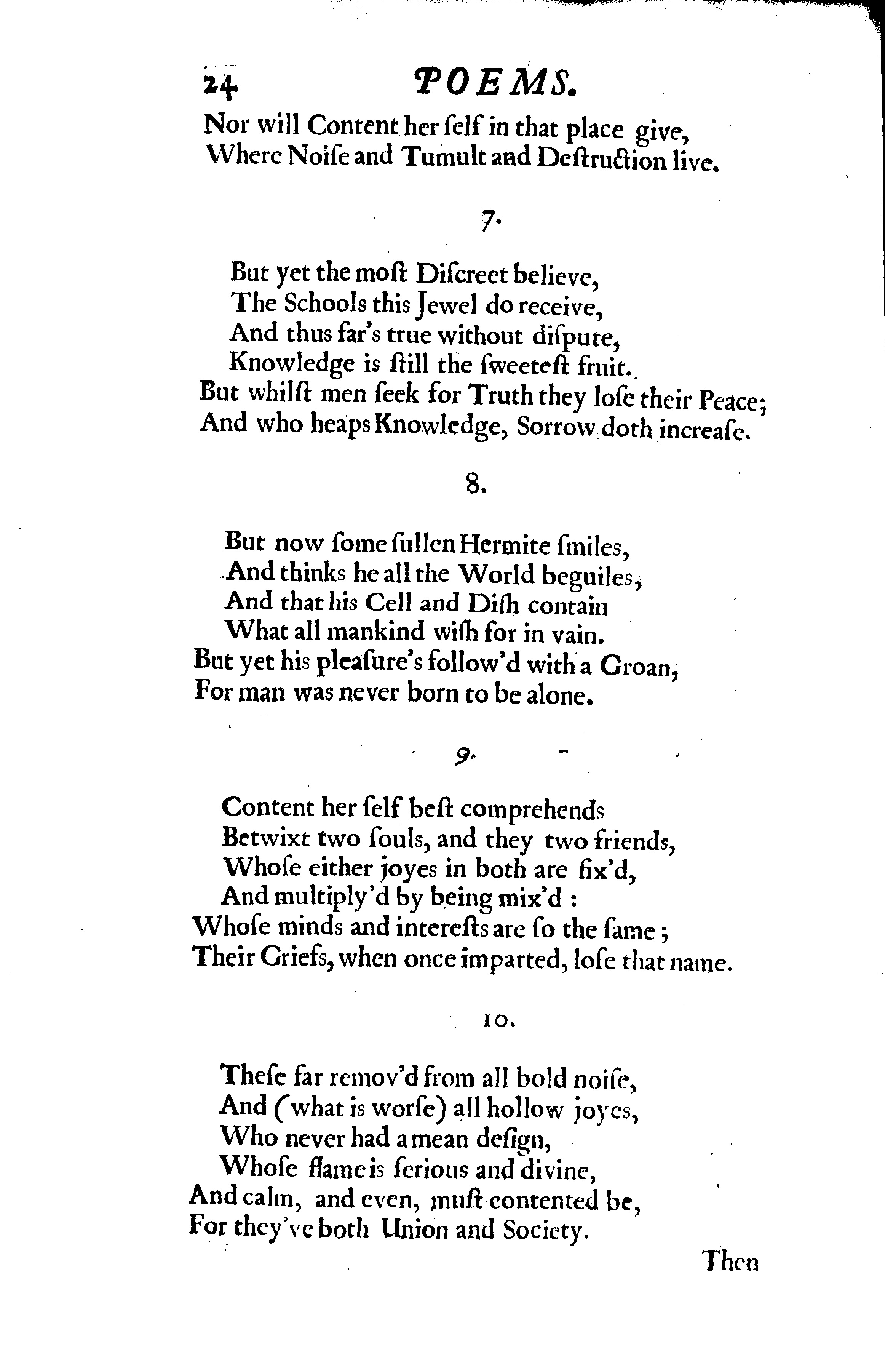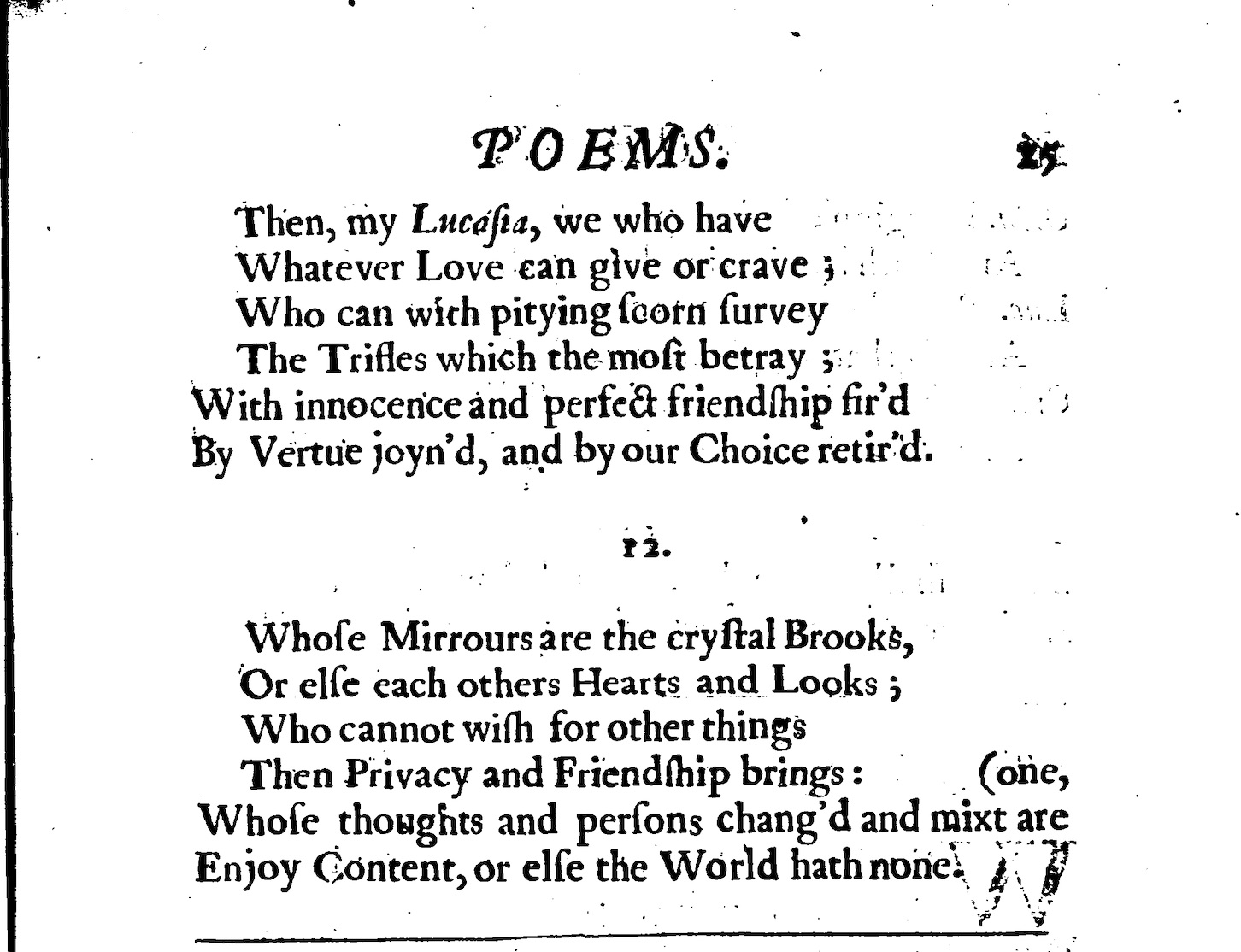"Content, to my dearest Lucasia"
By
Katherine Philips
Transcription, correction, editorial commentary, and markup by Students and Staff at The University of
Virginia, John O'Brien, Sara Brunstetter, Sara Kathleen Doyle, Rachel Retica
Lucasia "Lucasia" refers to
Ann Owen, Philips's closest friend and the person to whom many of her poems
are addressed. The poem is a meditation on where and how they might find
true "contentment."abstruseDifficult to understand; obscure,
recondite. (Oxford English Dictionary)Red-CrossThe Red Cross
Knight is the protagonist of Book I of Edmund Spenser's The Faerie Queene, published in the 1590s.
Philips is referring to a passage where the Red Cross Knight mistakes
"treacherous falsehood" in the form of a character named Duessa for the
"clear Truth" of Fidessa. The Red Cross Knight is a symbol for purity
and the Anglican church, and Duessa can be read as a symbol of the false
or duplicitous Roman Catholic church.MineThat is, Philips views
contentment as being more valuable than any jewel that can be mined from
the earth.LaurelThe foliage of the laurel tree is an
emblem of victory or of distinction in poetry, as well as military
conquest. (Oxford English Dictionary)Cypress-bowCypress is a common material for archery bows, but also associated with
mourning.EcclesiastesEcclesiastes 1:18.Hermite Alternative
spelling for hermit: one who from religious motives has retired into
solitary life (Oxford English Dictionary).CellRefers to the religious hermits who slept in
a cell and used one dish for meals.retiredRetired in the
sense of having retired to the countryside, where Philips and Owen were
living, having left London during the Civil War.Then"Then" as in "Than":"Than that which privacy and friendship
bring."
22
Content, To my dearest
LucasiaLucasiaLucasia "Lucasia" refers to
Ann Owen, Philips's closest friend and the person to whom many of her poems
are addressed. The poem is a meditation on where and how they might find
true "contentment."
Content, the false World's best disguise,
The search and faction of the Wise
Is so abstruseabstruse
abstruseDifficult to understand; obscure,
recondite. (Oxford English Dictionary) and hid in night,
That, like that Fairy Red-cross
KnightRed-CrossRed-CrossThe Red Cross
Knight is the protagonist of Book I of Edmund Spenser's The Faerie Queene, published in the 1590s.
Philips is referring to a passage where the Red Cross Knight mistakes
"treacherous falsehood" in the form of a character named Duessa for the
"clear Truth" of Fidessa. The Red Cross Knight is a symbol for purity
and the Anglican church, and Duessa can be read as a symbol of the false
or duplicitous Roman Catholic church.,
Who treacherous Falshood for clear Truth had got,
Men think they have it when they have it not.
For Courts Content would gladly own,
But she ne'er dwelt about a Throne:



